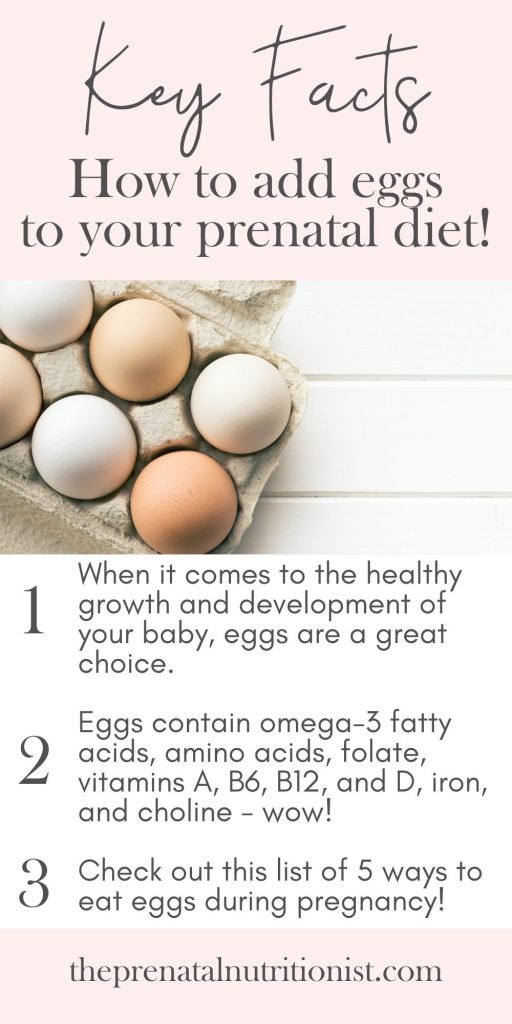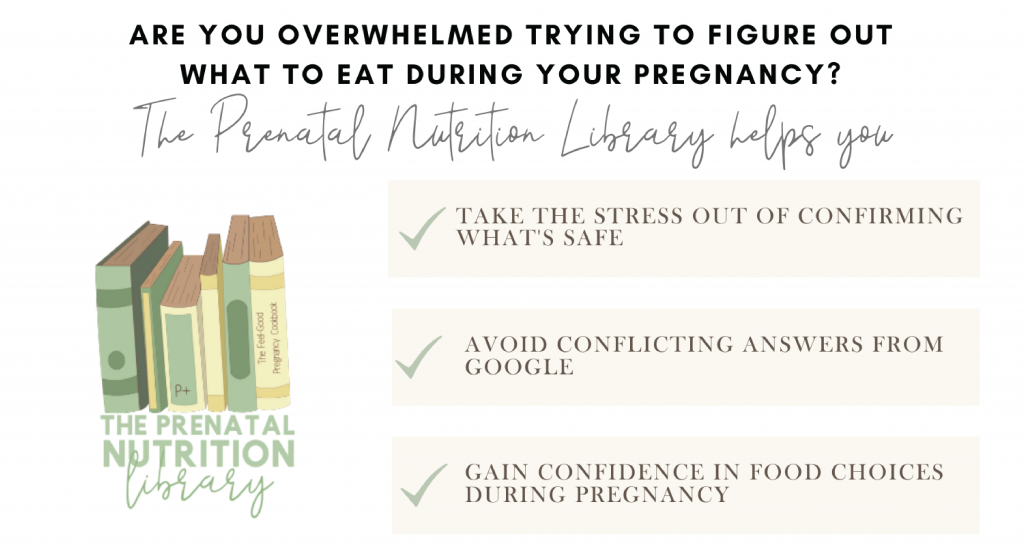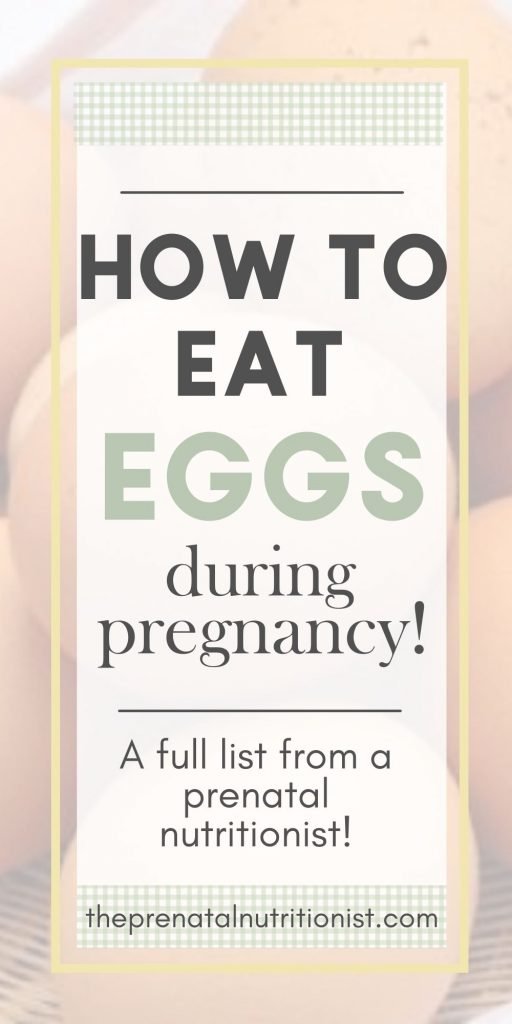
Pregnancy increases a woman’s nutritional requirements, so it’s essential to focus on eating nutrient-rich foods throughout your pregnancy. There are many delicious and nutritious foods you can add to your diet that can give you a real nutrient boost, and one of these nutrient-dense foods is eggs, especially for the choline.
Eggs are rich in vitamins, minerals, and other nutrients that support a happy and healthy pregnancy. They help promote the baby’s overall development, especially the baby’s brain development. Due to the high amount of choline found exclusively in the yolk, eggs also help to reduce the risk of neural tube defects. They are an excellent source of protein to give expectant mothers a much-needed energy boost first thing in the morning or for an afternoon snack.
The best practice is to cook eggs thoroughly and avoid undercooked or runny eggs. However, you’re actually much more likely to get food poisoning from produce than eggs. It’s a personal decision about what you feel most comfortable with, but to me, the benefits of eating eggs of any type outweigh the small risk.
Some myths floating around on the internet recommend avoiding eggs due to salmonella bacteria, but the risk of an egg carrying salmonella is very low. Choosing pasture-raised eggs also helps to reduce risk. As with any food you consume during pregnancy, upholding basic food safety guidelines is still crucial.
Here at The Prenatal Nutritionist, we know the importance of good nutrition during pregnancy. That’s why we’re here to share all the best tips and tricks for maintaining a healthy diet throughout pregnancy.
So, let’s discuss all the different ways to eat safe eggs during pregnancy.
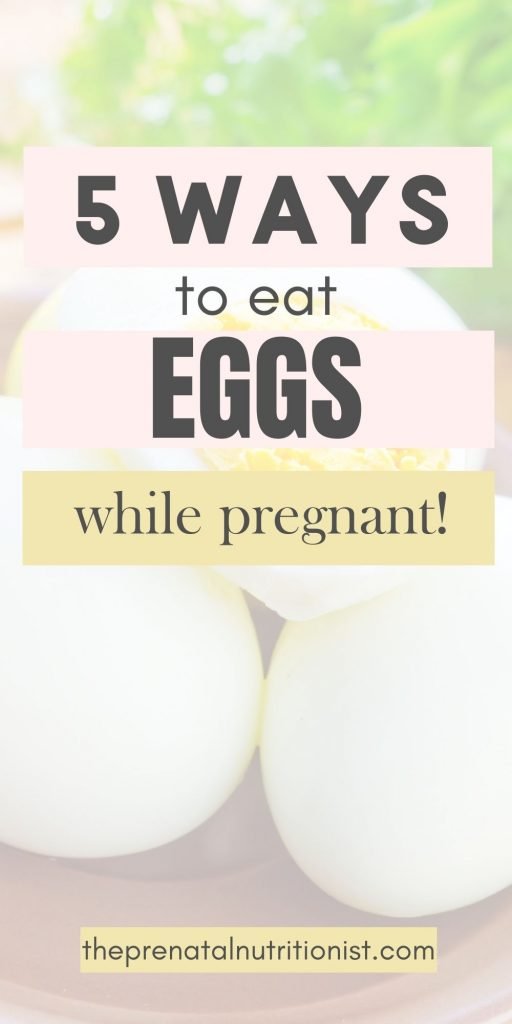
How To Eat Egg During Pregnancy
Scrambled Eggs
Scrambled eggs are a delicious and healthy breakfast option for any day of the week. Plus, they’re super versatile. You can add peppers, tomato, spinach, onions, and your favorite seasonings when making your eggs.
Start by cracking two eggs into a cup or bowl, and whisk until the yolk is thoroughly mixed. Add any extras and cook over medium heat for 3-5 minutes. One of my favorite ways to eat scrambled eggs is inside a warmed tortilla with cheese and beans to make a delicious breakfast taco, or pair your scrambled eggs with a side of fruit or sauteed veggies for a fiber-filled boost to your breakfast.
Hard-boiled Eggs
Hard-boiled eggs – yum! This style of eggs is perfect for breakfast, as a side, or as a snack. Just one hard-boiled egg contains a whopping 6-7 grams of protein. You can enjoy a hard-boiled egg plain with a dash of salt and pepper, slice it up as a topping for your next salad, or layer it on some avocado toast—more snack options here.
Here’s how to whip up some hard-boiled eggs; first, grab your desired amount of eggs and place them in a pot. Cover the eggs with water and bring to a boil over medium/high heat. Once boiling, remove from heat and cover for 7-10 minutes. Then, cool the eggs in cold water. Peel and enjoy! Store any leftover eggs you won’t be eating right away in a clean glass container unpeeled, and placed in your refrigerator.
Fried Eggs
Fried eggs are a breakfast staple, and it’s clear to see why. They’re delicious and nutritious and go great with most other breakfast foods. Think avocado, toast, oatmeal, and fruit. Eat fried eggs on your next breakfast sandwich or on some yummy avocado toast. The options are endless.
Fried eggs are super simple to make. Add avocado oil, butter, ghee, olive oil, or coconut oil to your pan—warm pan over medium heat. Once warm, crack two eggs into your pan and fry for 1-2 minutes. Then, flip both of your eggs and allow them to cook on the other side as well thoroughly. Once cooked to desired doneness, add a pinch of salt and pepper and enjoy!
Consuming undercooked or runny eggs (over-easy, sunny-side up, or over-medium eggs) during pregnancy does carry a slightly higher risk of foodborne illness. This is why best practice recommends thoroughly cooking eggs. However, if you only like your eggs one specific way, like over-easy, the benefits of eating eggs may outweigh the slightly increased risk.
Omelets
Omelets are an excellent and healthy choice for breakfast, but let’s not forget that they are also perfect for those breakfast-for-dinner nights. Whip up a yummy Western omelet with ham, Swiss cheese, green and red bell pepper, and olive oil, or try a veggie omelet with onion, mushroom, spinach, and green bell pepper, avocado, and tomatoes. Or, whip up your unique mix of ingredients. There is no shortage of options when it comes to omelets.
Start by cracking 2-3 eggs in a cup or bowl and whisk until thoroughly mixed. Then, pour the egg mixture into your pan and cook over medium heat for 2-3 minutes. Place your favorite omelet ingredients (diced) on one side of the omelet, and flip the other side of the omelet on top, creating the half-circle shape. Flip omelet one time, then plate and enjoy!
A folate-rich orange, sauteed mushrooms, spinach, hash browns, beans, or bacon taste great on the side of an omelet. If you have other kid’s in the house, omelets with cheese and beans are a kid-friendly favorite!
Frittatas
An egg frittata is delicious for any meal or occasion. It’s also great meal-prep food, meaning just one frittata can be breakfast for the whole week. Plus, they require minimal ingredients, and because they utilize plenty of vegetables, they are a great source of essential nutrients.
Because frittatas require a bit more instruction to make, we recommend checking out an online Frittata recipe or my pregnancy cookbook. There, you will find delicious frittata recipes and all the instructions you need to whip up this delicious dish.
Remember, frittatas are versatile dishes you can “make your own” too. Try edamame, spinach, broccoli, tomatoes, bell peppers, and more – the options are truly endless. You can even try mini-frittatas in a muffin tray instead of a larger “pie.”
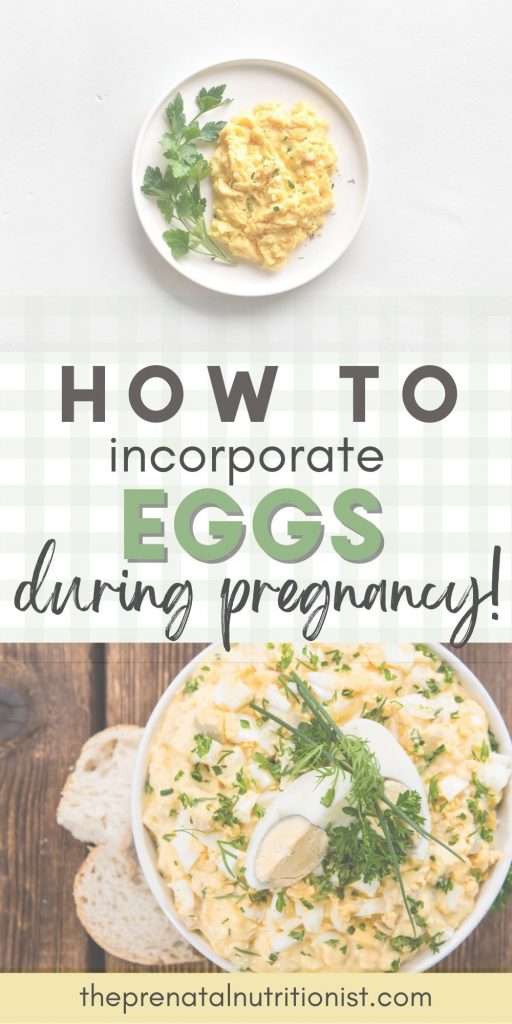
Not only are eggs safe to eat during pregnancy, but they are delicious, nutritious, and known to benefit pregnant women in many ways.
Eggs are a rich source of nutrients required during pregnancy. To name a few, eggs contain omega-3 fatty acids, amino acids, folate, vitamins A, B6, B12, and D, iron, and choline – wow!
The benefits of eating eggs are too many to list! When it comes to the growth and development of your baby, eggs are a great choice. They are a food that we recommend consuming every day of your pregnancy.
That’s right – eggs are safe to consume daily! They are one of the BEST sources of choline!
For more on all things Prenatal Nutrition, be sure to check out our blog & give us a follow on Instagram. No more conflicting answers for Google! Sign up for The Prenatal Nutrition Library today for access to answers to all your frequently asked pregnancy nutrition questions and more!
One more time for good measure: eggs are an excellent food for pregnancy that I recommend consuming daily during pregnancy if you enjoy them. If you have an aversion to eggs, try French toast, eggs cooked into oatmeal, simple homemade pancakes, and egg noodles. If you have an egg allergy or avoid eggs, check out The Prenatal Nutrition Library for more information on choline and choline supplementation.
